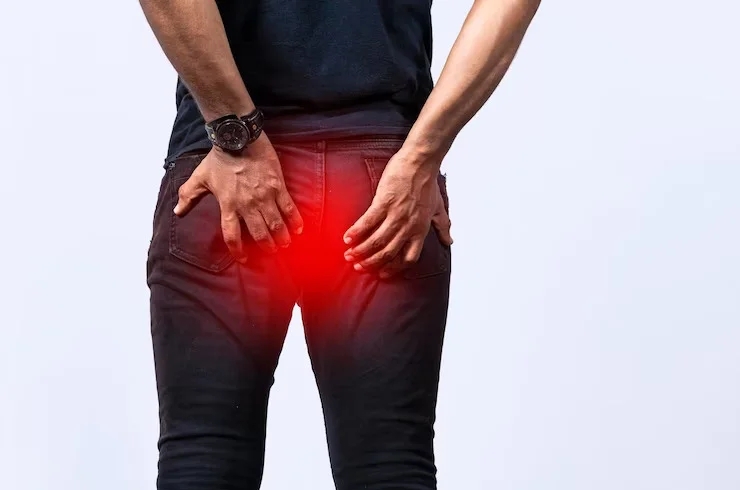
An anal fissure is a small tear or crack in the skin around the anus, often causing intense pain and discomfort, particularly during or after bowel movements. Fissures are commonly caused by passing large or hard stools, chronic diarrhea, or constipation. In some cases, they may also result from childbirth or anal intercourse. Symptoms of an anal fissure typically include sharp pain during and after bowel movements, itching, or a visible crack near the anus. While this condition may seem uncomfortable, it is usually treatable and can be managed with proper care and intervention.
Anal fissures are often caused by trauma to the skin around the anus, such as straining during bowel movements. Chronic conditions like constipation, which leads to frequent straining, can also contribute to fissures. Other factors like inflammatory bowel disease (IBD), anal infections, and poor blood flow to the anal region may increase the risk. The most common symptom of an anal fissure is severe pain during and after bowel movements, often accompanied by minor bleeding or spotting. The pain may persist for hours after the bowel movement and can cause anxiety or fear of defecating, making the condition even more difficult to manage.
Treatment for anal fissures depends on the severity and duration of the condition. In many cases, lifestyle changes such as increasing fiber intake, drinking plenty of water, and using stool softeners can help prevent further irritation and allow the fissure to heal naturally. For more severe or chronic fissures, topical treatments, such as nitroglycerin ointments or calcium channel blockers, may be prescribed to promote healing and relieve pain. In some cases, surgical intervention may be necessary to remove the fissure or to relax the anal sphincter muscles to prevent recurrence. At MIMAS World Hospitals, we specialize in both conservative and advanced treatments for anal fissures, ensuring the most effective and least invasive approach for a speedy recovery.